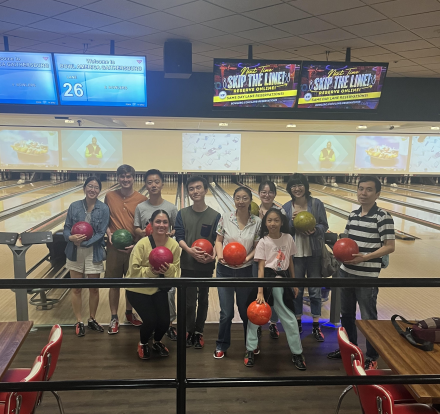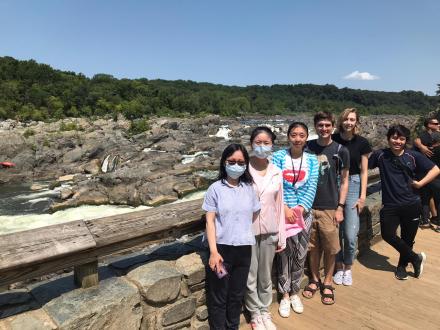Principal Investigator
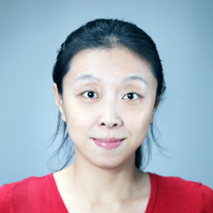
Dr. Yi Gu
E-mail: yi.gu@nih.gov
Dr. Gu received her B.S. and M.S. degrees from Tsinghua University, and Ph.D. degree from Johns Hopkins University. Her Ph.D. work in Dr. Richard Huganir’s laboratory was focused on the molecular and cellular regulation of neurotransmitter receptor trafficking.
Dr. Gu was trained as a postdoctoral fellow in the laboratory of Dr. David Tank at Princeton University, where she investigated the functional mechanism of the medial entorhinal cortex during spatial navigation by combining in vivo imaging with virtual reality behavioral paradigms. Dr. Gu joined NINDS as an investigator in 2019. Her research aims to understand the neural basis of spatial navigation and memory.
Lab Manager
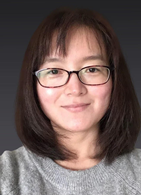
Dr. Yan Ma
E-mail: yan.ma@nih.gov
Yan received her Ph.D. degree in Genetics from Peking Union Medical College. Afterwards she conducted research as a postdoctoral fellow in Dr. Fielding J. Hejtmancik’s lab at the National Eye Institute, the institute lead to protect and prolong the vision of populations, where she applies her expertise to advanced research in the field of ophthalmic molecular genetics.
Yan joined the Gu lab as the lab manager in November 2022 to assist Dr. Gu to manage the lab as well as to study the neural mechanism of spatial navigation in mice. In her free time, Yan enjoys music, reading, hiking, and movies.
Post-docs
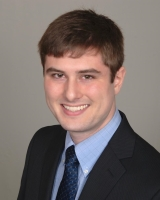
Dr. Taylor Malone
E-mail: taylor.malone@nih.gov
Taylor received his B.S. in Biology and Biomedical Engineering Systems from Tufts University, before beginning his Ph.D. in Molecular and Cellular Physiology at Yale University in the laboratory of Leonard Kaczmarek. In the Kaczmarek lab, Taylor studied Slack potassium channels and their gain-of-function mutations leading to childhood epilepsy and intellectual disability.
Taylor characterized a novel mechanism by which activation, or gain-of-function mutation, of Slack channels regulates mRNA translation. In the Gu lab, Taylor is pursuing his interest in understanding the mechanisms behind neurological disease by studying the role of the medial entorhinal cortex (MEC) in spatial learning and memory and MEC dysfunction in Alzheimer’s disease. Taylor’s hobbies include hiking, baking, and reading science fiction.
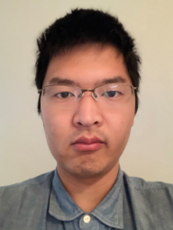
Dr. Lujia Chen
E-mail: lujia.chen@nih.gov
Lujia received his Ph.D. for work on memory processing and anatomical organization of hippocampal CA1 in Dr. Xiangmin Xu’s lab at University of California, Irvine. To better understand the memory processing process along the whole tri-synaptic circuit, he joins Dr. Gu Yi’s lab working on the mechanisms underlying spatial learning and memory in medical entorhinal cortex, an important input source and output target of hippocampus area. Apart from working on research projects, he is also interested in data science and software engineering related activities.

Dr. Ellane Barcelon
E-mail: ellane.barcelon@nih.gov
Ellane received her Ph.D. in Neuroscience from Seoul National University under the mentorship of Sung Joong Lee. In the Lee Lab, her research centered on the role and influence of astrocytes and microglia in mouse affective behaviors. She particularly investigated how midbrain periaqueductal gray astrocytes contribute to defensive behaviors, such as freezing and escape, upon mouse exposure to threatening and non-threatening stimuli.
She joined the Gu Lab to further explore her interest in unraveling the neural mechanisms underlying spatial navigation and memory, focusing on the medial entorhinal cortex. Beyond her academic pursuits, Ellane enjoys playing musical instruments such as the piano and guitar as part of a band.
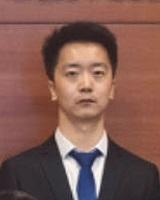
Dr. Kai Zhang
E-mail: kai.zhang2@nih.gov
Kai Zhang received his Mater of Medicine in anesthesiology from Tianjin Medical University, where he investigated the association between anesthetics and hippocampal pyramidal neurons in cognitive behaviors in freely moving mice. He is now a joint trained doctoral candidate by Tianjin Medical University and Beijing University. He studied the neural mechanism of the effects of depression on perioperative neurocognitive disorders under the guidance of Dr. Yonghao Yu and Dr. Yong Zhang. In the Gu lab, Kai Zhang is pursuing his interest in exploring the role of different cell types in the medial entorhinal cortex in spatial learning and memory. Outside the lab, he loves to play badminton and run for exercise, as well as enjoys multiple types of music.
Post-bacs
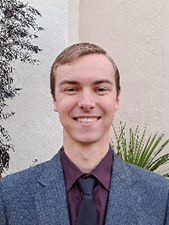
Kyle Cekada
E-mail: kyle.cekada@nih.gov
Kyle has his B.S. in Biomedical Engineering from California Polytechnic State University in San Luis Obispo, CA. He is excited to learn more about how spatial information is represented and computed in the medial entorhinal cortex (MEC). Kyle intends to pursue a Ph.D. in Neuroscience.
His long-term goals are to contribute to the treatment of chronic pain or neurodegenerative diseases, such as Alzheimer's disease. In his free time, Kyle enjoys hiking and playing sports, such as soccer and golf.
Summer students
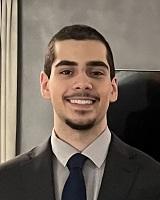
Daniel Yusufi
E-mail: daniel.yusufi@nih.gov
Daniel is pursuing his bachelor’s degree in neuroscience from George Mason University. He joined the Gu lab in the Summer of 2024 as part of the Summer Intern Program (SIP). By participating in the program, he aims to develop skills that would support a career in science. In his free time, he enjoys watching sports, lifting weights, and investing.
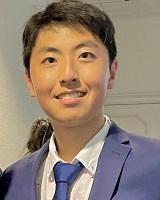
Kevin Zhang
E-mail: kevin.zhang2@nih.gov
Kevin is currently an undergraduate student studying Neurobiology & Physiology at the University of Maryland- College Park. He is working as a summer research intern at the Gu Lab to develop his research skills and explore the intricacies of how spatial information is represented in the brain. His long-term goals are to go to medical school. In his free time, he enjoys watching and playing sports, such as basketball, football, and running.
Volunteers
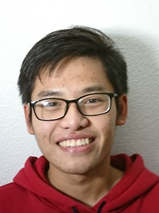
Duc Nguyen
E-mail: duc.nguyen@nih.gov
Duc received Bachelor's degree in Psychology from the University of California Berkeley. He joined the lab in August 2020 and is currently working on how sensory information is represented in the medial entorhinal cortex (MEC) during spatial navigation. He's leaving the lab in August 2022 for NYU where he will begin his PhD in Neuroscience.
Collaborators
- Ila Fiete, McGovern Institute, Massachusetts Institute of Technology
- Joshua A. Gordon and David A. Kupferschmidt, Integrative Neuroscience Section, National Institute of Mental Health, National Institutes of Health
- Shen-Ju Chou, Institute of Cellular and Organismic Biology, Academia Sinica, Taipei, Taiwan, Republic of China
Outside the lab
